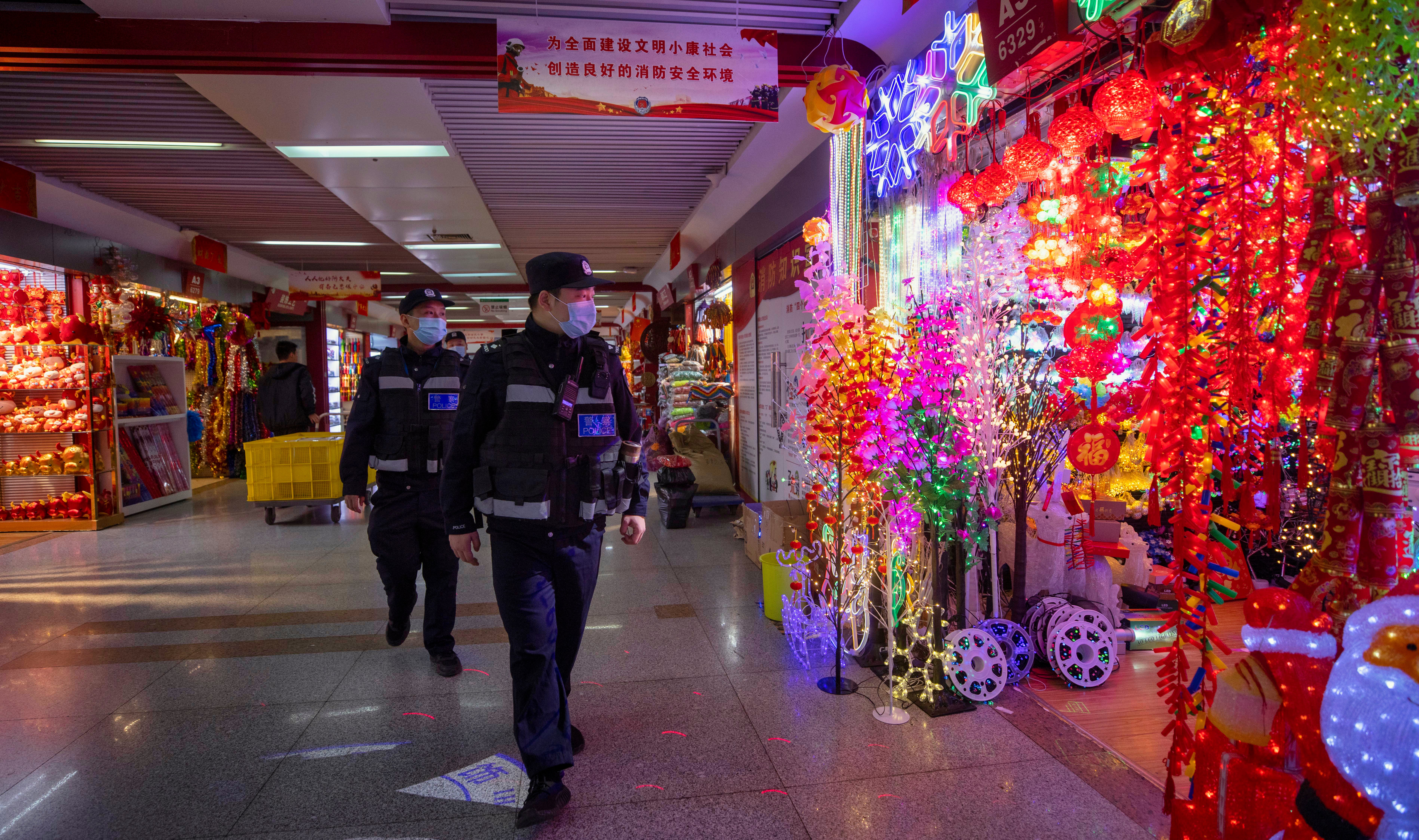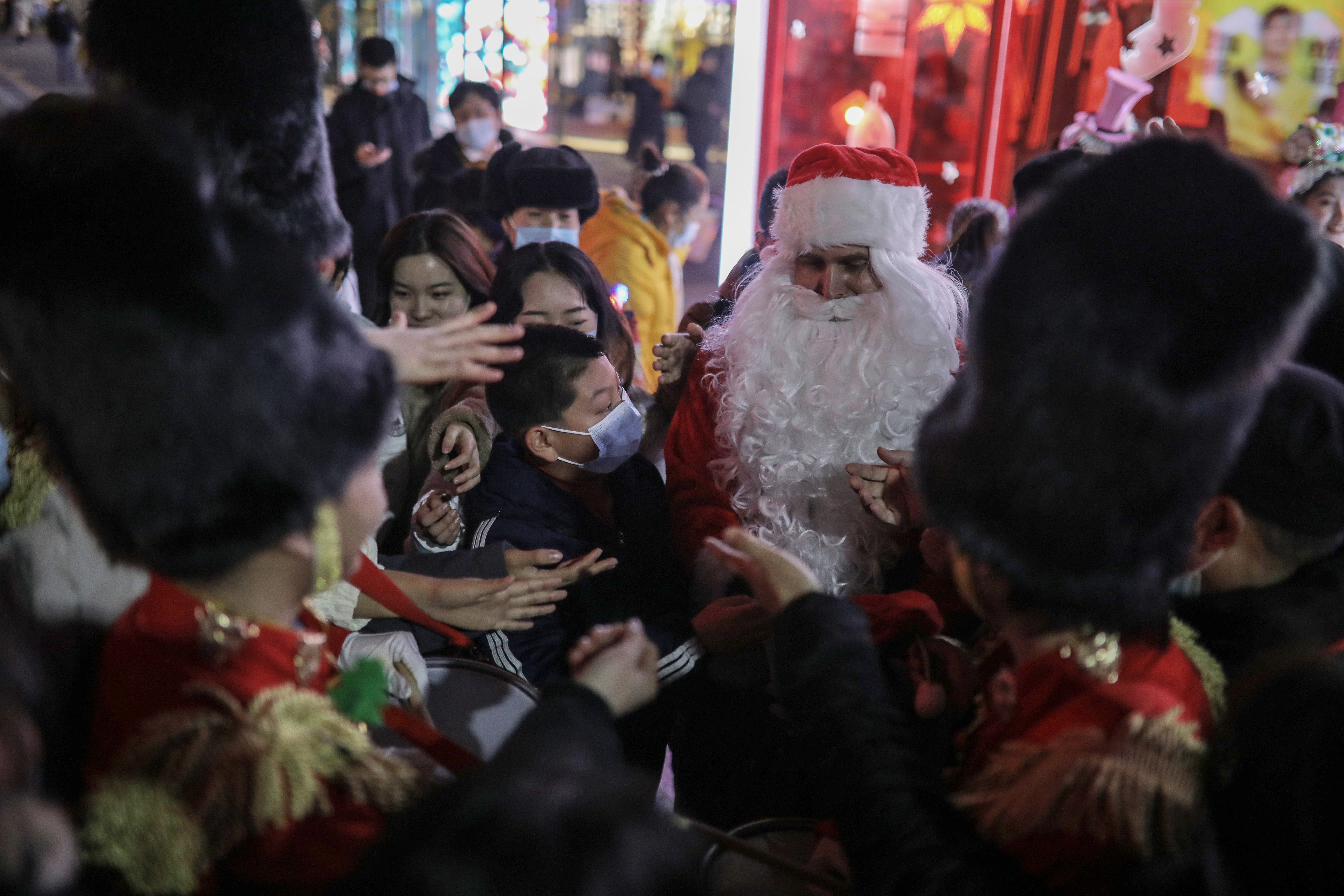‘Festival of shame’: Why China has cracked down on Christmas
Rising nationalism under Xi Jinping and tensions between China and the West has left little room for foreign culture that Beijing sees as an affront to Chinese values, writes Ahmed Aboudouh


Scorning it as ‘Western spiritual opium’ and the ‘Festival of Shame’, China has cracked down on Christmas in recent years as the Chinese Communist Party’s (CCP) increasingly vociferous brand of nationalism rejects any outside influence or ideas.
Christmas may not be traditional or officially recognised in China, but there are tens of millions of Christians in the country who celebrate the occasion while much of the general public enjoy festive rituals that are common worldwide - be it shopping for gifts or going out with friends.
Yet under the leadership of Xi Jinping - and since relations with the US soured under the presidency of Donald Trump - Beijing has sought to either downplay or exert control over Western culture or beliefs, and Christmas celebrations have been repeatedly denounced.
CCP notices have banned party members, government agencies, and even universities from taking part in any festivities while slogans urging citizens to boycott Christmas are common on social media platforms.
For example, in Hengyang city in Hunan province, authorities said in December 2018 that any Christmas activities or sales that blocked the streets would be removed. The previous December, a local government agency issued a letter warning CCP officials to avoid celebrating the occasion and instead promote traditional Chinese culture.
“Party members must observe the belief of communism and are forbidden to blindly worship the Western spiritual opium,” it read.
Under Mr Xi, the competition with the US and its allies emboldened nationalists at home who have become more vocal in urging society to focus on Chinese culture.
While Christmas around the world is celebrated by non-Christians and is often considered a cultural event as much as a religious one, academics said that the CCP was sensitive about China being open to any foreign influence as it espouses nationalism.
Rana Mitter, professor of history and politics in modern China at Oxford University, said Beijing was becoming more reluctant to allow the “free flow of what it regards as Western ideas”.
“This includes not just religious concepts but also ideas of liberal democracy and constitutionalism,” he told The Independent.
Speaking this month at a national conference on religious affairs, Mr Xi referred to the “sinicization of religion,” a catchphrase requiring all religions, faith, rituals and practices to align with Chinese culture and society.
Government policy is essentially to ensure that churches put the party and state above the religion
Since its introduction in 2015, the concept has aimed to bring Christianity, Islam, Buddhism, Taoism and all other religions in China under the CCP’s control and in line with its tradition and ideology.
Mr Xi told the conference there was a need “to develop a religious theory of socialism with Chinese characteristics, work in line with the Party’s basic policy on religious affairs, and uphold the principle that religions in China must be Chinese in orientation.”
The Chinese government has faced global criticism and accusations of genocide from countries including the US for its treatment of the Uyghur population and other mostly-Muslim ethnic minorities in northwestern Xinjiang, where about a million people are estimated to have been detained and subjected to abuses.
By contrast, there are a relatively small number of Christians estimated to be living in China - around 38 million Protestants and 6 million Catholics - and although suffering from abuses related to their religious beliefs, they have not suffered similar targeted persecution.
“The government’s attitude toward Christians, as with other religions, is not necessarily against the religion per se but rather the potential for religion to become a political force and an alternative to the CCP,” said Xing Hang, an associate professor at Brandeis University.
“Government policy is essentially to ensure that churches put the party and state above the religion,” Mr Xing said, adding that Christians might come under greater scrutiny in the future due to growing Chinese nationalism.
This could also be affected by relations between China and the US, which have worsened in recent years after trade disputes with Mr Trump, arguments over military presence in the Indo-Pacific, and pressure put on Beijing over human rights issues by the administration of US President Joe Biden.

Some Chinese officials have tried to deflect attention from Christmas in the country by instead encouraging people to celebrate the birthday of Mao Zedong, the former leader and architect of modern China who was born on 26 December 1893 and died aged 82.
On Christmas Day in 2019, just before the world became aware of the coronavirus pandemic, officials in Linyi, a city in Shandong province, placed a cake with “Happy birthday to Mao” at the footstep of a statue of Mao in the Wangzishan Temple in Pingyi county.
And in Chinese schools, Christmas has been identified as one of the evils in a patriotic education campaign that places great emphasis on rejecting anything Western, according to Bitter Winter, a magazine focused on religious liberty.
For instance, it focuses on teaching students about the “Century of Humiliation” – an account of China’s history between the 19th and 20th centuries where China was “bullied” by Western powers and Japan.
Although any Christmas celebrations in China this year may well be curtailed by the Omicron outbreak, one can still see trees, lights and decorations adorning public spaces and shopping malls in major cities including Shanghai.
This year, one user on Weibo questioned China’s cultural influence abroad and called for promoting national festivals such as the Spring and Mid-Autumn festivals.
They asked: “Wouldn’t it be great if one day the influence of the Spring Festival can reach 1 per cent or even slightly higher than that of Christmas?”
One post on Weibo referring to ‘Jesus in the West’ has gained a lot of traction.
“His people once formed the Eight-Power Allied Forces and came to China not far ago to snatch our money, kill our compatriots, and burn us,” it reads. “Now many Chinese people have to spend money to celebrate this old man’s birthday.”
Join our commenting forum
Join thought-provoking conversations, follow other Independent readers and see their replies
Comments


Bookmark popover
Removed from bookmarks